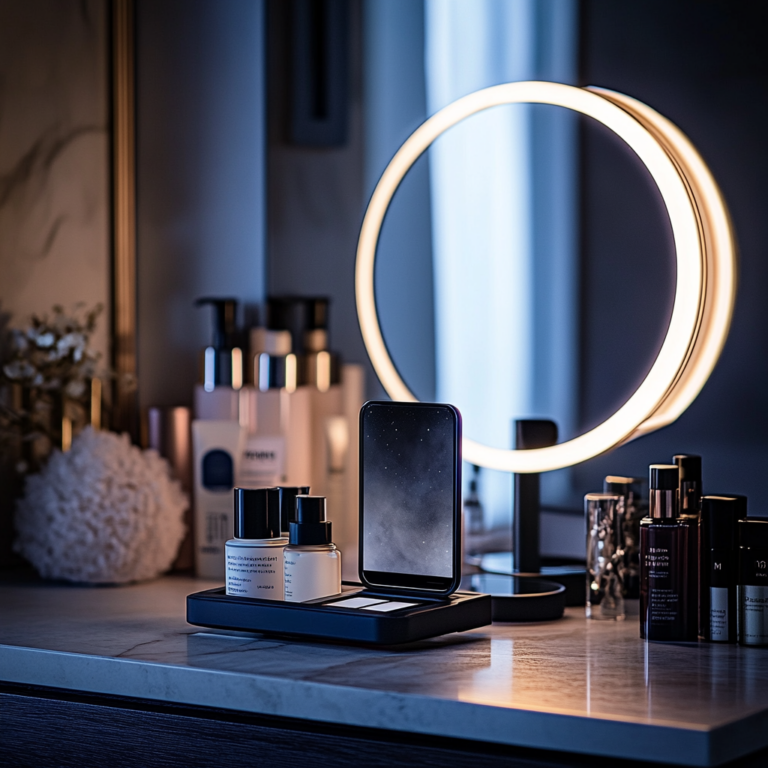Brand Ambassador vs Influencer: What is the Difference?

Word-of-mouth marketing—driven by social media—has skyrocketed. Today, brands are working with influencers and brand ambassadors alike to spread the word about the brand’s product or service to their followers. A Schlesinger Associates study found that 81% of companies have deployed an influencer campaign in the last year and received positive results.1 The key to success is finding the right influencer marketing agency for you.
But to generate the most ROI and buzz around your brand, you need to partner with the right person. And to begin, you need to know the difference between a brand ambassador and an influencer. Read on to learn how they differ from an audience’s perspective.
What Is an Influencer?
Influencer marketing is a strategy where a brand partners with a person who has a large social media following and a built-in audience that fits the brand’s target demographic. Within this umbrella, there are a wide variety of influencers.
Typically, their status depends on their total influence. An influencer may be limited to a single social media platform or have a presence across several different channels—the most common being:
- YouTube
- Twitch
- Podcasts
The person could be a mega-influencer with millions of followers or a nano-influencer with a few hundred. It could be a movie celebrity or a YouTuber, a food blogger or a fashionista. Some may come at a price point of $1,000,000 per post, whereas other smaller influencers may only charge a few hundred dollars for multiple. Our point? The spectrum of influencers are their and their reach is vast. Who a brand chooses to partner with hinges upon the brand’s audience and budget.
How Effective Are Influencers?
Influencer marketing has one of the highest ROIs of any marketing channel. These personalities give brands access to a highly targeted audience of people who already trust the person “selling” something to them. A 2020 Tap Influence Study found that:2
- Influencer marketing content delivers 11X higher ROI than traditional forms of digital marketing.
- 74% of people turn to social networks for guidance on purchase decisions.
- 49% of people say they rely on recommendations from influencers when making purchase decisions.
- 40% of people say they’ve purchased an item online after seeing it used by an influencer on Instagram, Twitter, Vine, or YouTube.
To that end, the success of a campaign largely depends on partnering with the right influencer. Simply drawing eyeballs to your brand doesn’t provide much value—not if they’re the wrong demographic. It’s paramount to align your brand with an influencer who captures the attention of your target audience.
For example, consider a makeup brand that wants to spotlight a new product line. They’re choosing between two options:
- Dasia Janae – A macro-influencer with 300,000 TikTok followers, Daisa focuses on beauty trends and make-up tutorials.
- Addison Rae – A mega-influencer turned celebrity who makes dance videos and has forty million followers.
On the surface, it may seem like it makes more sense to select Addison, who has an exponentially larger follower base. However, it would likely cost hundreds of thousands of dollars for her to post. And even then, only a small percentage of her followers may be interested in the product, or a significant portion may not trust her opinion on the matter.
With Daisa, you’ll likely yield a higher ROI. She’ll speak to an audience that’s already there to hear about makeup. That audience trusts her opinions on the subject. And with the money left over, you could invest in several beauty-oriented macro-influencers for the price it would cost to hire a mega-influencer like Addison.
What Are the Pros and Cons?
With all of that said, there are always benefits and drawbacks when working with an influencer. To name a few:
Pros:
- By working with different influencers, you can always reach a new audience
- Influencers provide more varied content
- Influencers can range from mega- to nano-sized audiences, depending on what you need
Cons:
- There’s typically no brand loyalty
- Their audience may or may not be the ideal demographic
- The quality of content can vary depending on the individual
- They may not spin your brand in a positive light
- They may not align with your brand ethos
Related: How Do Influencers Make Money
What Is a Brand Ambassador?
A brand ambassador is someone with a large network who is paid to promote a brand and its product to increase brand awareness and drive conversions. Entrepreneur defines the term as3:
“A person who’s hired by an organization to represent a brand in a positive light and, by doing so, help increase brand awareness and sales. This is a top priority for big companies today because people are more likely to buy after a recommendation from someone they trust, rather than from anything a brand has to say about itself. “
Wait, but isn’t that what an influencer does?
That’s correct. Except for one thing—a brand ambassador is committing to a longer-term partnership, whereas an influencer is just a fling. Brand ambassadors typically don’t establish campaigns with rigid start and end dates since it’s an ongoing partnership.
Ideally, brands want an ambassador who already used their service or product and shared the news with their audience simply because they loved what it provided. This creates an authentic connection between the person, the product or service, and their audience. It helps them provide useful commentary about how it’s applicable to their personal life.
Over time, an ambassador becomes associated with the company and (sometimes) the face of the brand itself. The partnership between a brand and its ambassador is often exclusive—the ambassador agrees to not work with or plug its main competitors.
So, the best ambassadors align with the brand’s ethos, mission statement, and solutions.
How Effective Are Brand Ambassadors?
Like influencer marketing, brand ambassadors can provide great ROI. According to BrandChamp, ambassador campaigns bring in $6.50 for every $1 spent on the campaign.4 That’s a 6.5X return on investment, which is infinitely better than traditional marketing channels.
But because this is a long-term partnership, it’s even more critical that you choose the optimal ambassador. As Forbes notes5:
“In 2020, brands took a hard look at their influencer marketing programs, and that one factor became paramount: to align themselves with overtly loyal brand partners who would both authentically and continually speak to (albeit, promote) their products.”
Typically, ambassadors tend to be in the mega-influencer category (though not always) because they have the broadest audience reach. And since they will repeatedly promote the brand, a shotgun approach is more effective over time. That said, specialized products may also partner with smaller influencers that have significant sway within a niche community.
What Are the Pros and Cons?
Similar to influencers, there are benefits and drawbacks to working with a brand ambassador. To name a few:
Pros:
- They are loyal to the brand
- They are more authentic and believe in what they’re promoting
- They align with the brand ethos
- They continuously and enthusiastically promote the brand
- They become the face of the brand
Cons:
- By working with the same people, you are targeting the same audience
- It can be cost-prohibitive to form a long-term exclusive partnership
- Selecting the ideal partner can be a challenge
How Do You Decide which Brand Ambassador or Influencer to Partner With?
To answer this question, you have to look inward. Because, in truth, it depends. By asking the following questions, you can begin to orient your choice:
- What are your marketing goals? – Whether you select an influencer or ambassador will first come down to this—what are you trying to achieve? Before you allocate any spending, you need to set SMART goals for the marketing campaign. These will help you determine which is a better fit and narrow down ideal partners.
- Which social channels are ideal for your brand? – Some influencers are focused on a singular channel while others are popular across several platforms. Wherever your target demographic is most concentrated is likely the best place to start. For example, if your brand primarily uses Instagram, knowing how to find an Instagram influencer would be a good place to start.
- What is your service or product? – It’s important to partner with people who focus on a similar industry or speak to your ideal customer demographic.
- Have you previously partnered with anyone? – If you’ve already worked with someone, it’s critical that you analyze where the campaign succeeded and where it fell short. This can help you determine who to partner with or what to do differently for the next campaign. If you’ve already established a solid working relationship, you could approach the influencer about becoming an ambassador.
An Influencer or Brand Ambassador Could Make The Difference
Whether you want a one-off engagement with an influencer or a regular partnership, influencer marketing isn’t going anywhere soon. It’s far too effective to die out.
But do you need help deciding what type of partnership is best for your company? Or who to partner with?
This is where the experts at Power Digital come in. Our premier digital marketing teams have established influencer networks throughout the country. We work with you to identify your marketing strategy and the personalities that can create life (and love doing so) for your brand.
Interested in learning more about what an influencer or brand ambassador could do to move the needle? Contact us today!
Sources:
- Insider Intelligence. Marketers Pair Up with Influencers—and It Works. https://www.emarketer.com/Article/Marketers-Pair-Up-with-Influencersand-Works/1012709
- Tap Influence. The Ultimate List of Influencer Marketing Statistics. https://www.tapinfluence.com/influencer-marketing-statistics/
- Entrepreneur. How Being a Brand Ambassador and Social Influencer Can Help You Exponentially Grow Your Business. https://www.entrepreneur.com/article/330346
- BrandChamp IO. 8 Ways Influencer and Ambassador Marketing Is Delivering Huge Returns. https://brandchamp.io/blog/nfluencer-and-ambassador-marketing-is-delivering-huge-returns/
- Forbes. A Tale Of Influencer Relations: The Rise Of The Brand Ambassador. https://www.forbes.com/sites/forbescommunicationscouncil/2021/02/25/a-tale-of-influencer-relations-the-rise-of-the-brand-ambassador/?sh=106083d8152c
Our Editorial Standards
Reviewed for Accuracy
Every piece is fact-checked for precision.
Up-to-Date Research
We reflect the latest trends and insights.
Credible References
Backed by trusted industry sources.
Actionable & Insight-Driven
Strategic takeaways for real results.





